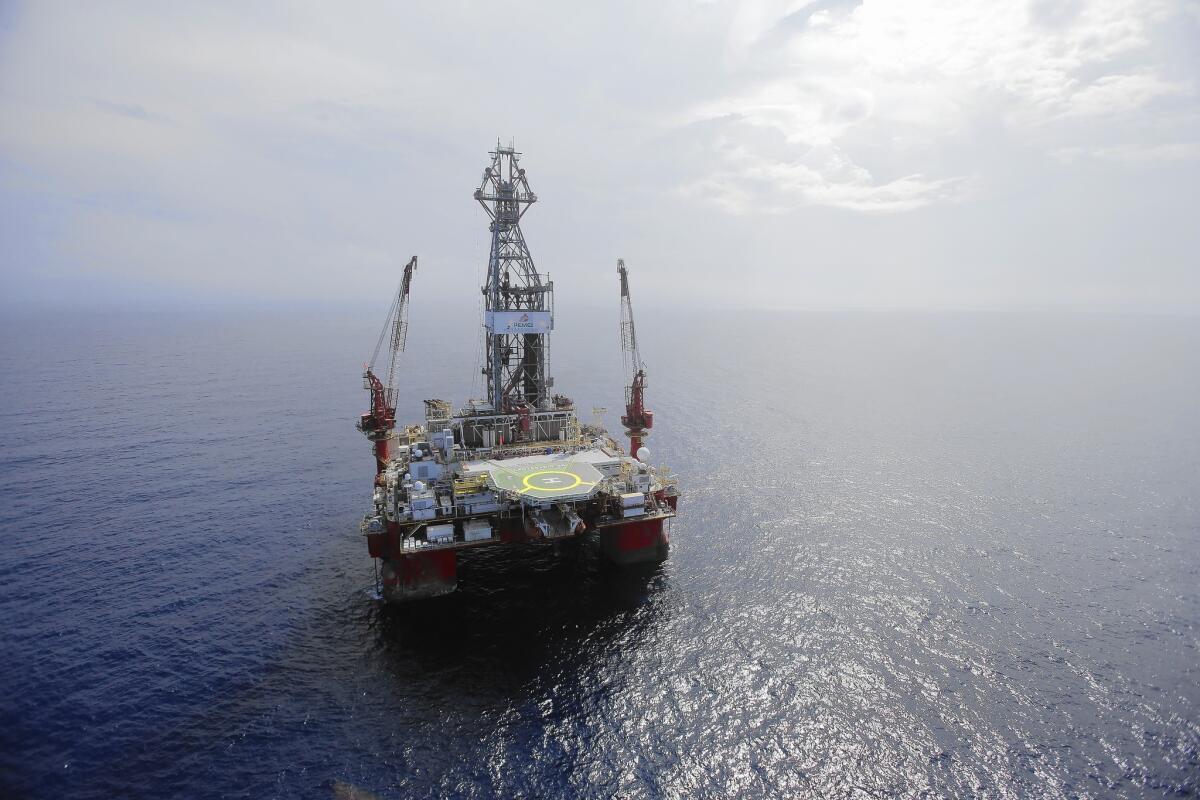Mexico officials answer Alfonso Cuaron’s Pemex questions

- Share via
Reporting from Mexico City — As the potentially landmark reform of Mexico’s state-owned oil industry hurtled toward a make-or-break deadline this week, an influential voice of criticism sounded from an unlikely quarter.
Oscar-winning director Alfonso Cuaron, whose film “Gravity” was a blockbuster hit in the United States and abroad, challenged President Enrique Peña Nieto to answer 10 questions about how the government planned to open up the monopoly to foreign investment and where the profits would go in this endemically corrupt country.
They were the same questions that had nagged millions of Mexicans since Peña Nieto altered the Mexican Constitution last year to end the monopoly, which had been considered sacrosanct for more than seven decades.
But in this case, Peña Nieto actually answered — in detail and publicly.
The enabling legislation that will underpin the energy reform was presented to Congress on Wednesday, the last day for legislators to act before going on break.
A special session will be called in the next month or so, during which the legislation (known here as “secondary laws”) will be debated and probably approved, despite fierce opposition from the left.
The rules are important because international energy companies, though excited about the reforms, are eager to see the details. U.S. companies could be major beneficiaries because of their geographical proximity.
Peña Nieto has said that the overhaul of Petroleos Mexicanos, or Pemex, is central to the nation’s economic growth. The company’s production of crude oil has declined steadily, to 2.6 million barrels a day from a high in 2004 of 3.5 million, a milestone to which Mexican officials hope to return in the next decade.
Among the details published online by the government this week is that foreign gas stations will continue to be barred for now. (All gasoline in Mexico is pumped by Pemex at its ubiquitous green-and-white stations.)
Contracts and licenses will be put up for international bidding, but a priority will be given to Mexican companies if they meet the right conditions.
In general, Energy Minister Pedro Joaquin Coldwell said, Mexico hopes that “local content” will comprise 25% of all energy projects by 2025.
And then, in response to Mexican-born Cuaron’s first question, Joaquin Coldwell said that Mexicans could expect reductions in their extremely high gas and electricity bills within two years.
To the more embarrassing of Cuaron’s questions — how Peña Nieto’s Institutional Revolutionary Party will avoid the corruption that had been its political trademark — Finance Minister Luis Videgaray responded that today is a time of greater transparency.
Later, the president’s aides took the unusual step of publishing a lengthy, point-by-point response to Cuaron’s questions.
Though many Mexicans, via Twitter and other social media, cheered Cuaro¿n for having pried feedback from the government, they wished that ordinary citizens might enjoy a similar give-and-take. Cuaron, clearly, has certain gravitas.
More to Read
Sign up for Essential California
The most important California stories and recommendations in your inbox every morning.
You may occasionally receive promotional content from the Los Angeles Times.














